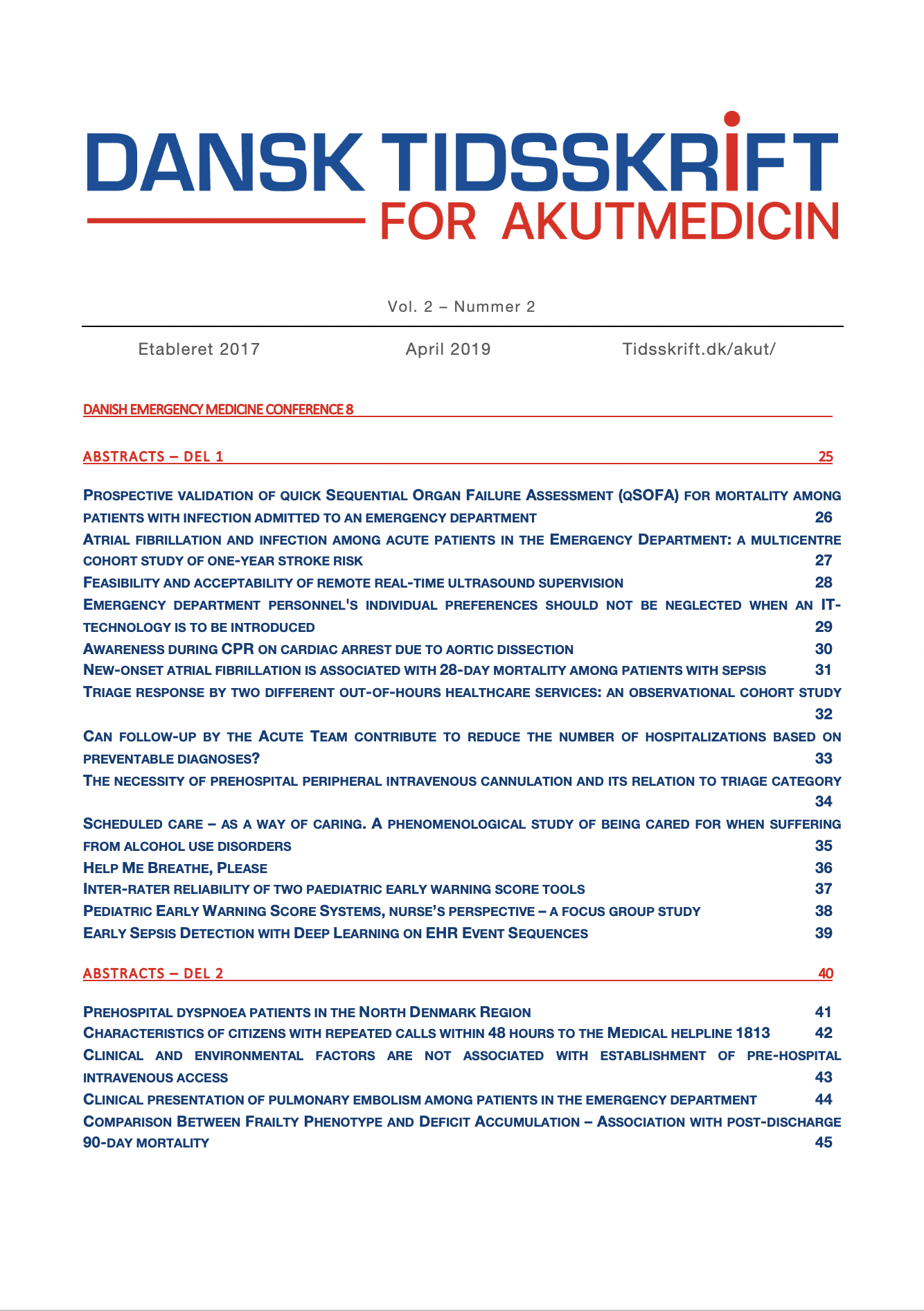Resumé
Awareness during CPR is formerly reported in the literature but only in rare cases and it is still not clear whether these cases have anything in common.
A case report regarding a 69-year old male patient.
The patient was admitted to the hospital due to 3 days dyspeptic symptoms and sudden onset of dyspnoea a few hours before arriva. During admission a short period of tachycardia (250/min) is followed by asystolic cardiac arrest. CPR is immediately initiated. By the arrival of the cardio-resuscitation-team, the patient has a peripheral hemoglobin saturation of 100% and a high level of awareness with open eyes and movement of the head and both arms and legs. Re-evaluation of the hearts rhythm after 3 minutes still shows asystoli. A total of 10 mg of Epinephrine is administered in boluses of 1 mg every 3-5 minutes. By the 3ed hand-off for rhythm evaluation, the patient is orally intubated. A total of 5 arterial gas samples are done during the 90 minute CPR, and despite a decrease in pH to 7,11 and lactate of 18 after 90 minutes all other markers remain within the normal range, and both the arterial and peripheral hemoglobin saturation remains 100%. The level of awareness does not decrease notably during the 90 minutes. Echocardiography shows a heart with no noticeable ultrasonic movement. A projection visualizing the aortic arch raises suspicion of an aortic dissection. The autopsy shows he has have suffered a complete aortic dissection
High level of awareness plus saturation and arterial gas almost within the normal range through all 90 minutes indicate very effective chest compressions and peripheral and cerebral blood flow. Even though the patient had a poor prognosis (complete aortic dissection and refractory asystole), termination of CPR raised ethical questions in the team as the patient was still conscious once the resuscitation was terminated by 90 minutes. Awareness during CPR also raises the question of proper sedation doing resuscitation, which is currently not part of the guidelines. Further research regarding pain relief during CPR as well as increased focus on communicative and ethical aspects during CPR is needed.
Licenseret under en Creative Commons Kreditering 4.0 International-licens (CC BY 4.0).
© Forfatterne.

